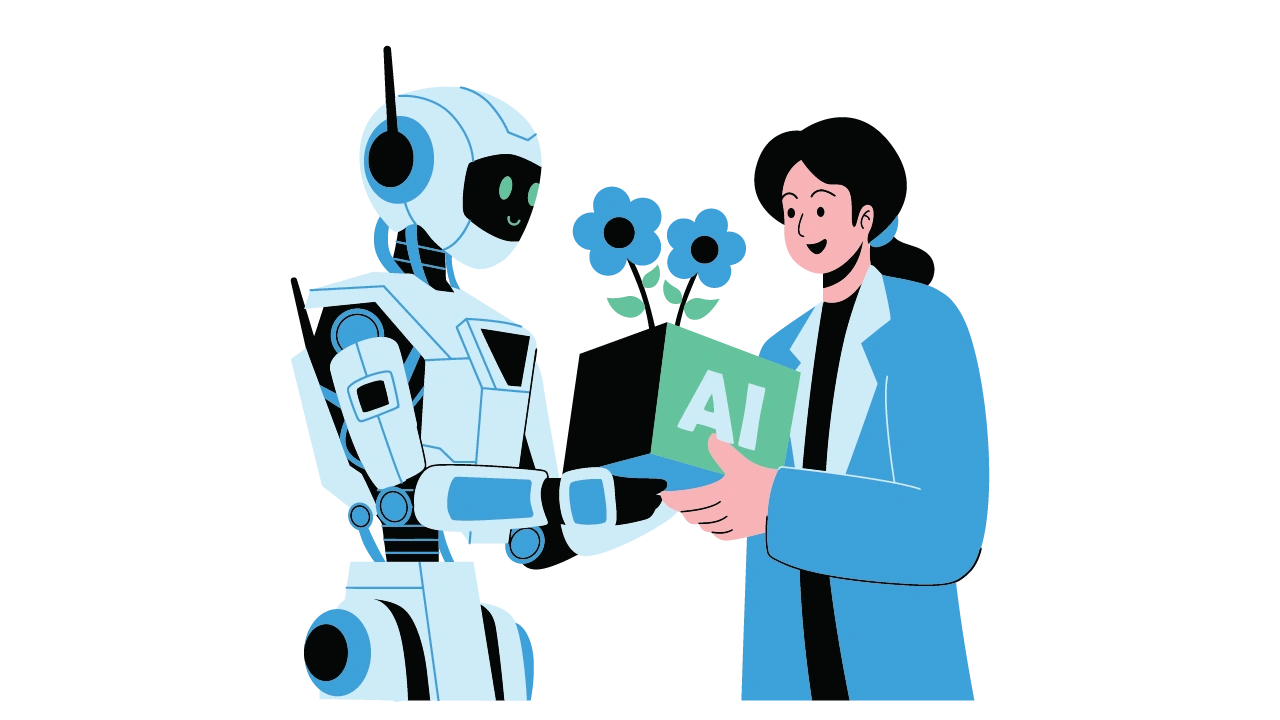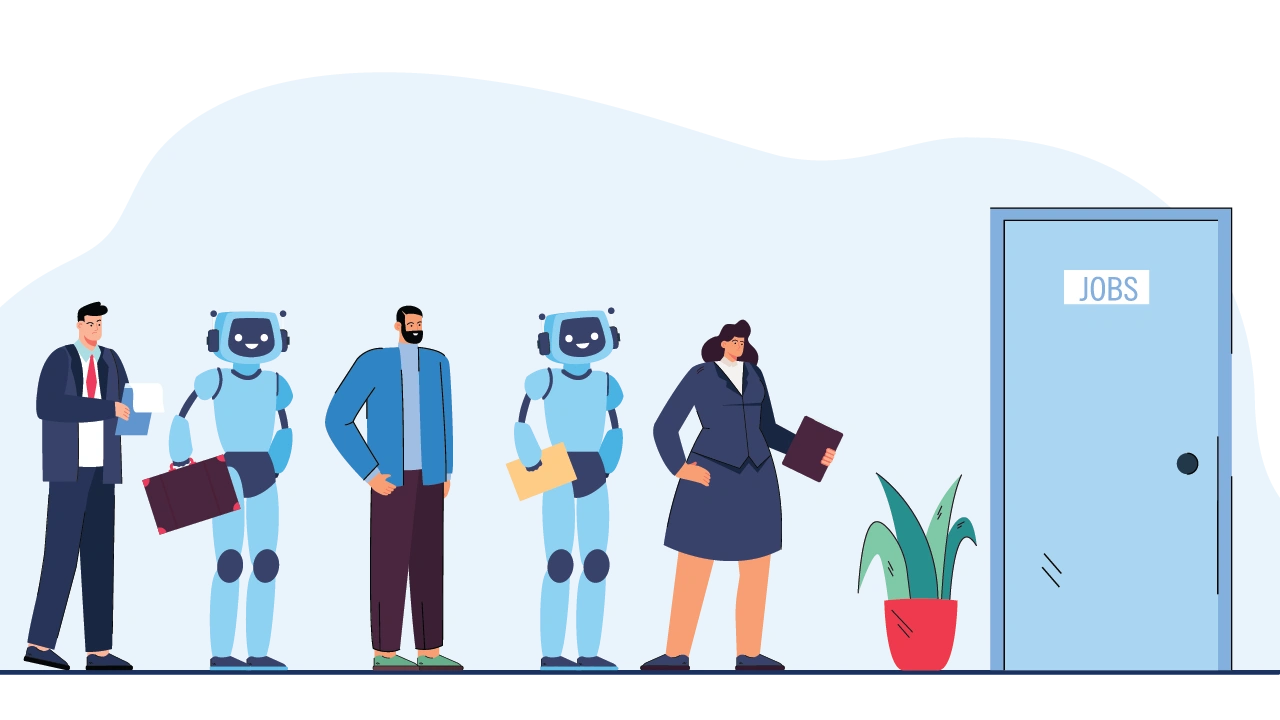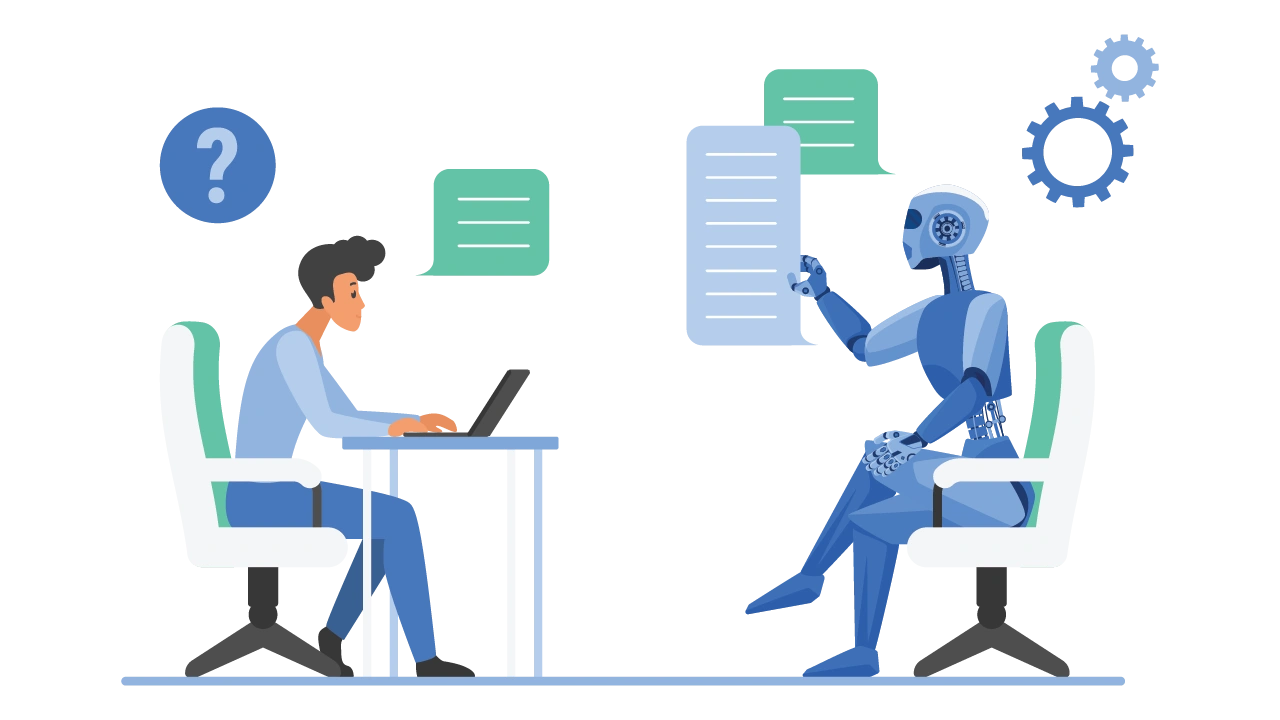


The corporate landscape is undergoing a radical transformation, and at the heart of this change lies a fundamental re-evaluation of the Human Resources function. The archaic image of HR as a bureaucratic, administrative department—focused solely on compliance, payroll, and policy enforcement—is not just outdated; it's a active liability for any growth-oriented business. In its place, a new paradigm has emerged: HR as the central nervous system of a company, a critical strategic driver directly responsible for talent innovation, cultural resilience, and operational excellence.
This revolution is not driven by policy changes but by technological empowerment. Artificial Intelligence has emerged as the great enabler, shifting HR's role from reactive support to proactive, predictive leadership. The pivotal question for today’s CEOs and founders is no longer a simple if they need strategic HR guidance, but a more complex how that leadership should be structured and delivered. For small and medium-sized enterprises (SMEs) navigating growth constraints, the solution is increasingly found not in a costly full-time executive, but in accessing HR leadership on demand through a sophisticated Fractional CHRO model. This approach delivers strategic HR without full-time cost, providing enterprise-level insight with agile, scalable execution.
This comprehensive analysis explores why an AI-first methodology is now the non-negotiable standard for modern HR service delivery. We will delve into how this technological shift fundamentally redefines the competencies of the Chief Human Resources Officer, whether engaged as an interim CHRO for SMEs or a permanent fixture, and illustrate how Talent Synergy fractional CHRO services are specifically engineered to build this future-ready capability.
To understand the future, we must acknowledge the limitations of the past. For decades, the HR function was synonymous with manual, paper-intensive processes. Its value was measured in terms of efficiency in processing hires, administering benefits, and ensuring legal compliance. This reactive model inherently created organizational bottlenecks, frustrated employees with slow, impersonal service, and provided business leaders with historical data long after critical strategic decisions had to be made. HR was, for all intents and purposes, a cost center—a necessary back-office function.
The new paradigm, AI-Driven HR Service Delivery, represents a complete philosophical and operational overhaul. It is not merely about digitizing existing forms or using a chatbot to answer FAQs. It is a holistic re-engineering of how HR services are conceived, delivered, and experienced, with the ultimate goal of creating a function that is predictive, personalized, and profoundly efficient. This transformation shifts the HR mandate from simple process management to strategic service delivery that directly influences business outcomes.
Intelligent Automation of Service Transactions: The foundation of AI-driven delivery is the automation of routine, high-volume transactions. AI-powered chatbots and intelligent service portals now provide instant, accurate, and consistent answers to employee questions about PTO, benefits, policies, and more, 24/7. This not only creates a seamless, responsive employee experience (EX) but also liberates HR professionals from the tedium of repetitive queries, allowing them to focus on complex, strategic, and high-value issues like organizational design and talent development.
Proactive and Predictive Support: Modern AI systems move far beyond simple descriptive reporting (“What happened?”). They use predictive analytics and machine learning to identify patterns, anticipate needs, and prescribe actions. For instance, the platform can automatically alert a manager with tailored guidance if a new team member’s digital activity suggests a slow onboarding ramp-up. Similarly, it can nudge an employee to complete mandatory training before a deadline, ensuring compliance without the need for manual follow-up, thereby transforming HR into a proactive partner.
Hyper-Personalization of the Employee Journey: Personalization is no longer exclusive to marketing. AI enables the mass customization of HR services. From recommending learning and development modules tailored to an individual’s specific career goals and skill gaps to customizing communication and benefits options based on life stage, the employee experience becomes uniquely relevant. This level of personalization significantly boosts engagement, retention, and overall effectiveness by making each employee feel seen and valued.
Data-Driven Decision Intelligence: Perhaps the most significant impact is on leadership decision-making. An AI-first HR function provides executives with a clear, real-time, data-backed dashboard of the organization’s human capital health. It shifts strategic conversations from backward-looking questions like, “What was our turnover rate last quarter?” to forward-looking, predictive questions such as, “Which high-performing employee segments are at the highest risk of leaving in the next six months, and what are the precise key drivers we need to address?” This allows for targeted, preemptive action, turning HR data into a strategic asset.
In essence, AI-driven service delivery transforms HR from a static, administrative department into a dynamic, intelligent service hub. The leader who architects this system is therefore no longer just a traditional HR expert; they are a master of modern service delivery, data analytics, and organizational design.
For growing SMEs, the need for strategic HR leadership is acute, but the resources to hire a full-time, elite CHRO with this specific tech-forward skillset are often scarce. The traditional solution—a generic HR manager—lacks the strategic vision, while the desire for a full-time C-suite executive strains budgets. This gap is precisely where the Fractional CHRO model proves to be a game-changing innovation, offering sophisticated part-time HR leadership with full-time strategic impact.
An outsourced HR head in the form of a Fractional CHRO provides the strategic acumen and experience of a C-suite executive on a flexible, as-needed basis. However, when this model is infused with an AI-first philosophy, its value proposition is exponentially greater. This modern Fractional CHRO is not a consultant who merely advises and departs; they are an architect who designs, builds, and often operates the new HR delivery engine.
Also Read : Transform Employee Query Resolution with AI-Driven Ticket Management
1. Comprehensive Diagnostic with Advanced Data Analytics: The engagement begins with a deep audit of the company’s existing people processes, cultural dynamics, and technological stack. This isn’t a superficial review; it involves deploying AI-powered diagnostic tools to analyze internal data, identifying the most significant opportunities for impact—whether that lies in improving recruitment efficiency, mitigating turnover risk, closing critical skills gaps, or boosting productivity.
2. Strategic and Phased Roadmapping: Following the diagnostic, the Fractional CHRO doesn’t just present a list of problems. They build a detailed, prioritized, and phased implementation plan for building an AI-driven HR service delivery model. This includes selecting the right technology vendors (e.g., AI-powered Applicant Tracking Systems, employee engagement platforms, performance management tools) based on the company’s specific size, industry, and goals, ensuring all components integrate seamlessly into a cohesive ecosystem.
3. Hands-On Implementation and Systems Integration: This is the crucial differentiator that separates a modern Fractional service from traditional consulting. The Fractional CHRO rolls up their sleeves to implement these systems. They configure platforms, automate workflows, ensure clean data integration between systems, and train internal teams on new processes. They are responsible for building the intelligent, automated service delivery engine from the ground up.
4. Continuous Measurement and ROI Optimization: From the outset, clear Key Performance Indicators (KPIs) are established, directly tied to business outcomes. These go beyond traditional HR metrics to include things like time-to-productivity for new hires, quality of hire, employee engagement scores, and predicted flight risk. AI dashboards provide live visibility into these metrics, demonstrating a clear and compelling return on investment to the leadership team and justifying the strategic value of the HR function.
This model of part-time HR leadership effectively allows an SME to punch far above its weight. It enables them to deploy a sophisticated, data-driven HR function that would be the envy of many larger corporations, but to do so without the massive overhead associated with a full-time executive salary, benefits, and bonus package. It is, in its purest form, strategic HR without full-time cost.
For larger, established organizations, the mandate for the full-time CHRO has also evolved dramatically. The job description has expanded far beyond traditional labor relations and compensation expertise. Today’s CHRO must possess a rare blend of deep human empathy, strategic business acumen, and strong technological fluency. An AI-first Full-Time CHRO operates as the organization’s visionary for human capital technology, responsible for:
Cultivating a Data-Centric HR Culture: They must champion the use of data in every people-related decision, training and empowering their HR Business Partner teams to interpret analytics, challenge assumptions, and move decisively away from instinct-based or anecdotal management.
Owning the Integrated HR Tech Stack: They are the ultimate architect and owner of the entire suite of HR technologies. Their role is to oversee the selection, integration, and continuous optimization of these platforms, ensuring they work together as a cohesive, intelligent, and frictionless ecosystem that serves both employees and leaders.
Ethical Governance and Risk Mitigation: As As the executive responsible for people data, they become the guardian of ethical AI use within the organization. This is a critical and complex duty, encompassing data privacy, algorithmic bias detection and mitigation, and transparent communication with employees about how AI tools are used to make decisions that affect their careers.
Strategic Workforce Forecasting and Planning: Using predictive models and scenario planning tools, the AI-first CHRO advises the C-suite on long-term workforce strategy. They identify future skill needs based on the company’s strategic goals and map out detailed plans to develop, acquire, or access that talent, ensuring the organization is prepared for future challenges.
The modern full-time CHRO uses AI not as a crutch, but as a force multiplier—a powerful tool that enhances human intuition and decision-making to create a more agile, responsive, and resilient organization.
At Talent Synergy , the core belief is that strategic HR leadership in the modern age is fundamentally inseparable from technological execution. This philosophy is baked into every aspect of their Fractional CHRO services, which are built from the ground up on the principle of AI-first delivery.
The approach is distinctly different from traditional consulting. The objective is not to advise clients on what they should do and then depart. The objective is to architect, build, and deliver a fully functional, next-generation HR service delivery function. The process is a rigorous, four-stage engineering blueprint designed for implementation and measurable results:
1. Discover & Diagnose: The engagement launches with a deep-discovery phase. Instead of relying on interviews alone, Talent Synergy fractional CHRO services deploy advanced, AI-driven diagnostic tools to quantitatively map the client's current HR landscape. This data-led approach pinpoints the highest-value opportunities for immediate impact and return on investment.
2. Architect & Plan: With a clear understanding of the landscape, a detailed strategic blueprint is co-created with the client’s leadership team. This roadmap provides a phased, prioritized plan for implementing an AI-driven service delivery model, complete with specific technology recommendations tailored to the client’s budget, size, and strategic goals.
3. Implement & Integrate: This is the stage where vision becomes reality. Talent Synergy’s experts take the lead in configuring platforms, integrating systems, automating complex workflows, and cleansing data to ensure it is accurate and actionable. This hands-on implementation ensures the new ecosystem works flawlessly from day one.
4. Measure & Optimize: From the very beginning, success is defined by data. Key Performance Indicators (KPIs) are established to measure business impact, not just HR activity. Clients are provided with transparent, live dashboards to track progress against goals like improved hiring efficiency, reduced time-to-productivity, and increased employee retention, ensuring continuous optimization and undeniable value.
For businesses seeking an interim CHRO for SMEs or a long-term strategy as an outsourced HR head, Talent Synergy fractional CHRO services provide a unique value proposition: the fusion of strategic C-suite oversight with the practical execution capability of a world-class HR technology and delivery team.
The question is no longer whether AI will transform HR; the transformation is already underway and accelerating. The competitive advantage will irrevocably go to those organizations that embrace AI-first HR service delivery, led by a visionary—whether Fractional or full-time—who can effectively harness the power of data, technology, and human insight.
This approach does more than just create a more efficient HR department; it builds a more engaging and empowering employee experience, fosters a culture of innovation, and constructs a more resilient, forward-looking organization. It marks the definitive difference between having an HR function that reports on the past and one that actively helps the business design and dominate the future.
If you are ready to move beyond traditional, transactional HR and build a function that is predictive, personalized, and powerfully driven by data, the time to act is now. Explore how Talent Synergy fractional CHRO services can provide the HR leadership on demand that your growing business needs to scale intelligently and sustainably.
Schedule a free HR Discovery Call with Talent Synergy today. The initial analysis will review your current setup and outline a clear, actionable path to a data-driven people strategy built to scale and succeed.

In today’s rapidly evolving work landscape, the arrival of Agentic AI in the workplace is shifting the way teams function, decisions...

As artificial intelligence continues to reshape the workplace, a new frontier is emerging-one where human workers and AI agents...

The “Future of Work” is no longer a distant vision—it’s today’s reality. In 2025, global organizations are navigating a landscape...

In a world where distributed teams are the norm rather than the exception, the role of culture is under the microscope like never before...

We hear about AI everywhere - from headlines about job losses to promises of supercharged productivity...

In today's dynamic and often unpredictable business landscape, growth is the ultimate aspiration for small and mid-sized enterprises (SMEs)...